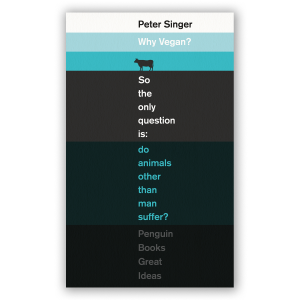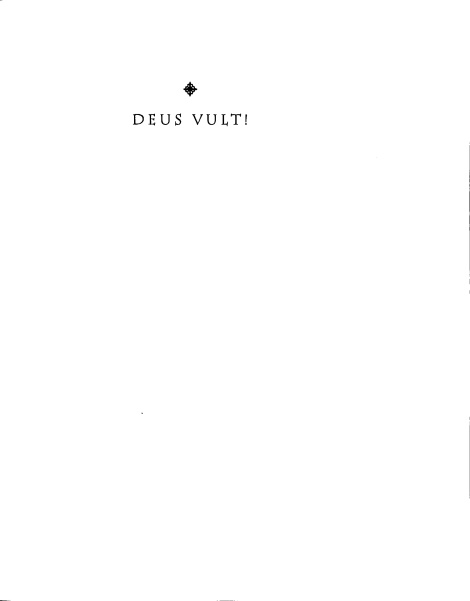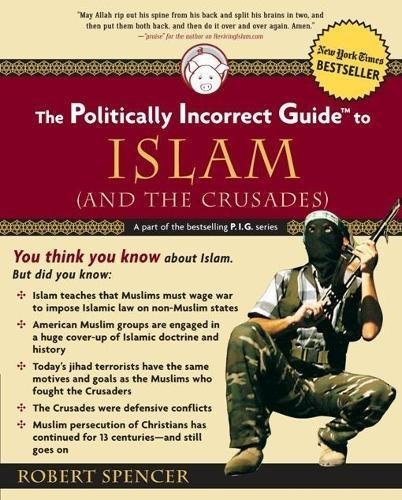Professor Peter Singer is a prominent, academically distinguished advocate of veganism. He if anyone can write a compelling argument for veganism.
It seems there is no compelling argument for veganism.
Why Vegan? is a quick read. (Took me only 1½ years as the father of a child from newborn on! This may also explain why my previous blog post came out some two years ago.) A pocket-size paperback of 85 pages, it consists of several veganism-related articles spanning five decades. The text is easy to comprehend and suitable even for the not-so-academical reader.
All that is left
The book attempts to rationally argument for vegan ethics mainly in the first two chapters. Singer apparently believes that he’s making so strong a case that he confidently goes on to demonstrate the urgency of adopting veganism, describing the plight of factory-farmed livestock in horrific detail. An analytical reader will see through his attempt to actually promote veganism by instilling empathy towards animals, applying a narrative that emphasises their human-like qualities and leaving out the details that would make them seem less antropomorphic. (I’d like to point out at this point that vegans are typically city-dwellers with a much narrower experience of animals than the rural human.)
What striked me as surprising was the overt display of left-wing ideology in the ethical argumentation. (Singer has also authored a book titled Marx, by the way.) This is probably indicative of the well-known hegemony of leftism that has established itself in the academia over the last several decades. Singer may find it quite sufficient to only convince the leftists of veganism as those are the overwhelming majority in his world. The first two chapters of Why Vegan? pertain to Singer’s 1975 book Animal Liberation, but their message seems perfectly contemporary to someone who has followed the culture wars of the recent years. Cancel culture, for example, can be found on the book’s pages—the fear of being left on the wrong side of history may well convince a leftist to turn vegan:
If we wish to avoid being numbered among the oppressors, we must be prepared to rethink all our attitudes to other groups, including the most fundamental of them.
The very point of the 1975 book on veganism is to extend the victim hierarchy to include animals, or ”non-human animals” as Singer puts it:
This book is about the tyranny of human over non-human animals. This tyranny has caused and today is still causing an amount of pain and suffering that can only be compared with that which resulted from the centuries of tyranny by white humans over black humans.
When a majority group – women – began their campaign some thought we had come to the end of the road. Discrimination on the basis of sex, it was said, was the last form of discrimination to be universally accepted and practiced without secrecy or pretense, even in those liberal circles that have long prided themselves on their freedom from prejudice against racial minorities. ¶ We should always be wary of talking of ’the last remaining form of discrimination.’
Yeah, spoiler alert: there will always be a newly found group of victims. Forms of discrimination are the renewable fuel of leftist activism. (This is not my discovery but one that has been pointed out by many conservative political commentators over the years.)
Beyond religion?
Thanks to my scepticism about veganism, Why Vegan? is a great book for me to comprehensively question the tenets of moral philosophy. My earlier adventures on the field of philosophical literature have been limited, but I have become convinced of the necessity of the transcendent point of view for an honestly established ethical system. Peter Singer doesn’t shake that conviction. He does claim to go beyond religion:
Christians, Jews and Moslems may appeal to scripture to justify their dominion over animals. Once we move beyond a religious outlook, we have to face ’the animal question’ without any prior assumption that animals were created for our benefit or that our use of them has divine sanction. If we are just one species among others that have evolved on this planet, and if the other species include billions of nonhuman animals who can also suffer, or conversely can enjoy their lives, should our interests always count for more than theirs?
To utterly destroy Singer’s vegan ethics, I can simply replace that last clause with: ”do we have any moral responsibilities that other animals don’t?”
Singer and his fellow Oxford Vegetarians from his student years around 1970 were non-religious (with the exception of Andrew Linzey). No wonder he arrogantly sees his own discipline as reaching beyond religion. Let me just point out that utilitarianism, his tool for reaching ethical conclusions, was developed in the context of Christian culture. It couldn’t have been conceived anywhere else.
Singer has his own scripture to invoke when morally equating animal suffering with human suffering. It’s biological literature. This seems to be the culmination of his ostensible rationale for veganism:
We commonly use the word ’animal’ to mean ’animals other than human beings.’ This usage sets humans apart from other animals, implying that we are not ourselves animals – an implication that everyone who has had elementary lessons in biology knows to be false.
I think Singer is missing something while imagining that humans are categorising themselves apart from animals in order to be morally able to inflict suffering upon them. The semantics has far wider uses, in reality. There are tons of reasons to separate ”non-human animals” from humans in everyday contexts. That humans are categorised as animals in biology doesn’t mean that they should be in other respects. This reminds me of Maurice v. Judd, the trial to decide whether whales are fish.
Singer quotes Jeremy Bentham to reach the pivotal conclusion that it is a creature’s ability to suffer that defines whether it deserves moral protections. ”So the only question is: do animals other than man suffer?” This is also the book’s subtitle. Singer goes on to assert that animals suffer the same as humans. But this isn’t the only question, after all:
There will be many readers of this book who will agree that factory farming involves an unjustifiable degree of exploitation of sentient creatures, and yet will want to say that there is nothing wrong with rearing animals for food, provided it is done ’humanely.’ These people are saying, in effect, that although we should not cause animals to suffer, there is nothing wrong with killing them.
Singer ridicules this viewpoint, stating that if it were only suffering that matters, we would be obliged to exterminate all animal life—to oppose this is to place some value on animal life. But I must say, given the weight Singer has given to suffering earlier on, he is ridiculing himself.
Introducing the value of life into the equation complicates matters.
When discussing experimenting on animals, Singer draws a comparison between the animal victims of these cruel trials and human infants.
There is no characteristic that human infants possess that adult mammals do not have to the same or a higher degree.
Singer reluctantly acknowleges it can be argued that the infant has potential of developing higher cognition than animals. But he insists that holding this viewpoint would require opposing abortion for consistency. And that this would still allow for using humans with severe brain injuries for experimentation.
For a reason left untold, Singer doesn’t seem to oppose abortion for consistency with his own moral standards of avoiding causing suffering and valuing life. Vegans in general, leftists they tend to be (as demonstrated in Why Vegan? as earlier noted), usually advocate accessible abortions. Veganism makes me uneasy not because of how vegans want to treat animals but because of the implications for the value of human life (and the discrepancy between the two).
What essentially distinguishes a human infant from an adult mammal in an ethical context is simply its humanity, being human. The truth is, humans’ special position in the moral hierarchy as opposed to animals originates from their Creator, the objective Goodness, God. Defining suffering as the objective evil in atheistic philosophy is artificial and baseless.
The real case against animal cruelty
Animal Liberation will require greater altruism on the part of mankind than any other liberation movement, since animals are incapable of demanding it for themselves, or of protesting against their exploitation by votes, demonstrations, or bombs.
They are also incapable of granting humans and other species (and often even their own kind) the same courtesy. Animals are not equal moral actors to men any more than are animal rights an obvious counterpart to human rights.
Despite everything I’ve written, I do not want to approve of animal cruelty nor to contribute to excessive suffering in the exploitation of livestock. I do see moral implications there. Abusive treatment of animals is morally reprehensible. Not directly because of what happens to the animal as a victim but because of what such behaviour makes of the culpable human and his actions. There must be a reason why the Greek word for ”(morally) good” originally also meant ”beautiful.”
[This book] does not tell us that we will become healthier, or enjoy life more, if we cease exploiting animals.
I would argue that the author does enjoy life more on a diet that leaves him free from feeling guilt over every meal. As he himself writes earlier on:
If we did give the issue serious consideration, if, for instance, we looked closely at the conditions in which animals live in the modern ’factory farms’ that produce our meat, we might be made uncomfortable about ham sandwiches, roast beef, fried chicken, and all those other items in our diet that we prefer not to think of as dead animals.
The pros
Why Vegan? has obviously hit a nerve and provoked me to a ”counter-attack.” This is definitely to the book’s credit—who doesn’t appreciate facing a book with the capability of doing this?
Also, Peter Singer does make a few points that I can agree with:
- Consumers who purchase meat do have a share in the moral responsibility for the suffering of livestock. They should be aware of the practices and knowingly accept their complicity.
- Eating meat does have implications for humans’ health and the environment that should be considered.
- When basing ethics on atheistic philosophy, there’s a case to be made for extending moral principles from humans to animals. Of course, atheistic philosophy also makes all moral principles negotiable and ultimately based on absolutely nothing.
The booklet gave me a deeper understanding of the everyday realities of factory farming. It’s far from pretty.
Also, Singer’s dal recipe is quite good and easy to cook.
Why Vegan? is a good book for a devout leftist who wants a superficial idea of why he/she needs to be vegan, to have something to explain to others, although his/her real motive for adopting veganism is social pressure.





 One major thing that was new to me has to do with ISIS (the Islamic State in Iraq and Syria, also ISIL, the Islamic State in Iraq and the Levant). This organisation (or state) appeared into my consciousness out of the blue a couple of years ago. Suddenly, it occupied areas in the Middle East and spread terror also in Europe. The Politically Incorrect Guide doesn’t address ISIS, of course, as it was written a decade earlier. But it does contain some interesting information as to the group’s ideology.
One major thing that was new to me has to do with ISIS (the Islamic State in Iraq and Syria, also ISIL, the Islamic State in Iraq and the Levant). This organisation (or state) appeared into my consciousness out of the blue a couple of years ago. Suddenly, it occupied areas in the Middle East and spread terror also in Europe. The Politically Incorrect Guide doesn’t address ISIS, of course, as it was written a decade earlier. But it does contain some interesting information as to the group’s ideology.